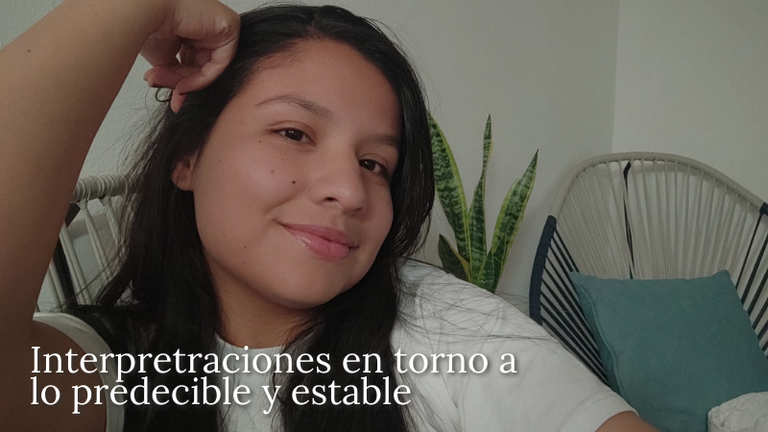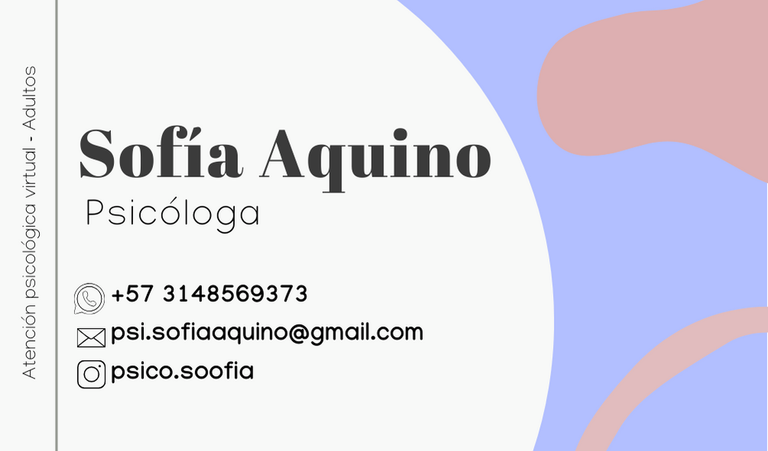
La rutina... odiada por algunos, amada otros.
Decimos "volver a la rutina" cuando terminan las vacaciones, o el domingo por la noche, antes de iniciar el ajetreado lunes.
"Caímos en la rutina" es una causa frecuente por la cual las personas alegan que se separan. Así, la rutina se asocia a la monotonía y esta, a su vez, al aburrimiento y el hastío.
Pienso que todo está en cómo uno lo interprete y decida mirarlo. Si la rutina se percibe como estructura, falta de variedad, ausencia de diversión, pesadez, pues así mismo la entenderemos y así lo viviremos. No es que nada de esto tenga que ver con la rutina, puede que sí, pero me gustaría incluir algunas otras ideas como: estabilidad, orden, seguridad y certeza.
Desde una perspectiva psicobiológica, los seres humanos nos beneficiamos de lo predecible y estable pues se percibe la realidad como segura y bajo control, entonces, no tendríamos que estar preparándonos constantemente ante señales externas que pueden o no ser amenazantes. Por eso, es común encontrar modos de funcionamiento enfocados en esta estabilidad. Permanecer en un lugar, entablar relaciones a largo plazo, escoger un modo de vida y dedicarse a ello. Quizás algunos se pregunten por el aburrimiento, tanto en las relaciones como en los modos de vivir, y no estoy en desacuerdo con ellos. El aburrimiento es un precio bajísimo que tenemos que pagar por la estabilidad que nos proporciona lo que está seguro alrededor nuestro. El aburrimiento siempre podrá aparecer, aunque cambiemos de trabajo, de vida, de relaciones las veces que queramos. Aburrirse es habituarse a algo que está presente en nuestras vidas, pero con la connotación peyorativa de "ya me acostumbré a esto y acostumbrarme no me proporciona el placer que genera lo nuevo"
Una vida llena de novedad, nomadismo, nuevas experiencias, "más divertida", también tiene su precio: no hay certezas, no hay estabilidad, todo es nuevo.
Me gusta hablar del punto medio, el aurea mediocritas, ese lugar en el cual introducimos algo de novedad a la rutina y algo de estabilidad a lo nuevo. Creo que podemos beneficiarnos mucho de flexibilixar nuestras vidas y adecuarlas a nuestras necesidades y gustos, en la medida de las posibilidades. Es preguntarnos qué nos funciona y a partir de allí diseñar la forma de nuestros días, entendiendo que, la vida es precisamente eso, la forma en la que vivimos día tras día y no lo que imaginamos de ella, deseamos o vemos fuera de nosotros.
La rutina la armamos nosotros mismos, en función de diversos factores: a qué le damos prioridad, qué necesitamos hacer, qué queremos hacer y qué debemos hacer. En cuanto a las horas, algunos horarios serán más rígidos y otros más flexibles. Para que nuestra rutina sea "buena" no tiene que iniciar a las 5:00 a.m, no tiene que cubrir una exhaustiva lista de tareas y tampoco tiene que ser como la de alguien más que ha romantizado su rutina y desde afuera se ve muy bonita y completa. Para que nuestra rutina sea buena debe ser funcional. Cuando lo enfocamos de ese modo la rutina deja de verse como esa cosa inamovible que debo cumplir obligatoriamente y empieza a lucir como esa serie de actividades que nos hacen bien, que tienen un sentido en nuestras vidas y que por eso decidimos realizarlas, si no diariamente, al menos la mayoría de los días.
Cuéntame en los comentarios, ¿qué tanto eres de rutinas? ¿qué tanto te gusta la rutina que llevas en este momento?, si pudieras modificar algo ¿qué sería? Nos leemos por allí!


Routine... hated by some, loved by others.
We say "back to routine" when the vacations are over, or on Sunday night, before starting the busy Monday.
"We fell into routine" is a frequent cause for people claiming to break up. Thus, routine is associated with monotony and monotony, in turn, is associated with boredom and ennui.
I think it all depends on how one interprets it and chooses to look at it. If routine is perceived as structure, lack of variety, absence of fun, drudgery, then that is how we will understand it and that is how we will experience it. Not that any of this has anything to do with routine, it might, but I would like to include some other ideas such as: stability, order, security and certainty.
From a psychobiological perspective, human beings benefit from predictability and stability because reality is perceived as safe and under control, so we would not have to be constantly preparing ourselves for external signals that may or may not be threatening. Therefore, it is common to find modes of operation focused on this stability. Staying in one place, engaging in long-term relationships, choosing a way of life and dedicating oneself to it. Some may wonder about boredom, both in relationships and in ways of living, and I don't disagree with them. Boredom is a very low price we have to pay for the stability provided by what is secure around us. Boredom can always appear, even if we change our job, our life, our relationships as many times as we want. To get bored is to get used to something that is present in our lives, but with the pejorative connotation of "I am used to this and getting used to it does not give me the pleasure that the new generates".
A life full of novelty, nomadism, new experiences, "more fun", also has its price: there are no certainties, no stability, everything is new.
I like to talk about the middle ground, the aurea mediocritas, that place where we introduce some novelty to the routine and some stability to the new. I think we can benefit a lot from making our lives more flexible and adapting them to our needs and tastes, to the extent possible. It is to ask ourselves what works for us and from there design the shape of our days, understanding that life is precisely that, the way we live day after day and not what we imagine of it, desire or see outside of us.
We set up our routine ourselves, depending on several factors: what we give priority to, what we need to do, what we want to do and what we must do. As for the hours, some schedules will be more rigid and others more flexible. For our routine to be "good" it doesn't have to start at 5:00 a.m., it doesn't have to cover an exhaustive to-do list, and it doesn't have to be like someone else's routine that has romanticized their routine and from the outside looks very nice and complete. For our routine to be good it must be functional. When we approach it that way, the routine stops looking like that immovable thing that I must necessarily fulfill and begins to look like that series of activities that do us good, that have a meaning in our lives and that is why we decide to do them, if not daily, at least most days.
Tell me in the comments, how much of a routine are you, how much do you like the routine you have at the moment, if you could change anything, what would it be? See you there!

Todas las imágenes de esta publicación son de mi autoría, editadas en snapseed y canva. El contenido también es original y propio.
All images in this post are my own, edited in snapseed & canva. The content is also original and mine.